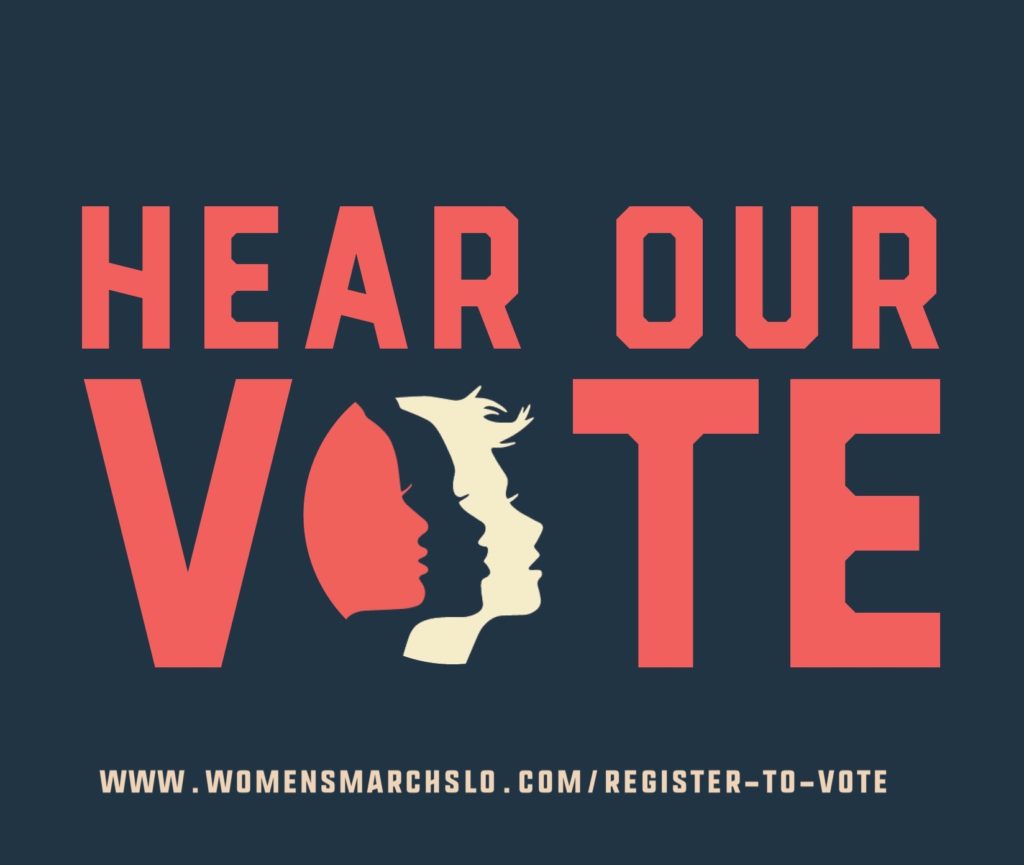Today, we are sharing action item #6 from the Women’s March 10 actions/100 days campaign.
As we grow our resistance movement, it is important to recognize the power of our vote. By focusing on upcoming special, local, and state elections, we can create a groundswell of new elected officials who will fight for our values. Our power lies at the local level, the pipeline for higher offices; this is why we have to vote more than once every four years. For the sixth action in our 10 Actions / 100 Days campaign, we ask you to register to vote and to identify the upcoming elections in your district.
Women’s March honors all who have fought for the right to vote, facing violence and even death to do so. We also acknowledge how the fight for women’s suffrage largely ignored the rights of Black, Asian, and Indigenous women, who remained barred from voting for decades after the 19th Amendment was ratified.
The fight for voting rights is far from over. Voting restrictions and voter suppression still exist today, under a different name. In many states, it has become more difficult for elderly and low-income people to vote, through strict voter ID laws and low number of polling places. Six million Americans cannot vote because of a previous felony conviction, and the mass incarceration of Black and brown people means that one out of every 13 Black voters is excluded. The difficulty and even inability to vote is one of many ways that the federal government fails to accommodate and protect the rights and identities of trans and non-binary people. Voter disenfranchisement also looks like gerrymandering, long polling lines, and the inability to take off work on Election Day. We are committed to asking ourselves who we may still be leaving behind in our voter enfranchisement efforts today. When we say “hear our vote,” we mean ALL votes. We march forward together or not at all.
We don’t have to wait until the next presidential election to make our voices heard. We need elected officials who represent and support our communities at every level. There are special local and state elections, as well as the 2018 midterm elections to prepare for. Check your registration status, register, and mark your calendars today. Join us using the hashtag #HearOurVote on social media.
Let’s prepare now to make sure our elected officials hear our vote. Our voice. Our power. Our vote.
If voting was not important, there would not be such significant investment in preventing it. Here are some resources and actions you can take to protect your and your community’s right to vote:
ACTIONS YOU CAN TAKE
- Are you registered to vote? If not, register here. Then spread the word on social media and encourage your family and friends to register!
- Engage with your Huddle and grow your activist communities! Are your family members registered? Your neighbors? Ask a young person if they’ve registered yet, or check in with an elder to see if they have everything necessary to vote. (Scroll to the bottom of this page for a list of suggested questions to discuss.)
- Reach even more people by hosting a voter registration drive in your community, setting up a table at local events/organizations (e.g., high school sporting event, supermarket, college campus, concert, community gathering, etc), or canvassing door-to-door in your neighborhood.
- Know your party affiliation and voter registration laws. If you want to support new candidates for office during primaries, you may be required by your state to register with a party. Find out more about your state’s requirements here. In 2017 many state legislatures are introducing restrictive voting laws that disproportionately impact minorities. See if your state is one of them.
- Mark your calendars for the next election, local or state. Find out upcoming dates by entering your state here. And get ready for the midterm elections on November 6, 2018!
RESOURCES
- Learn more about our country’s legacy of voter disenfranchisement and suppression by picking up Ari Berman’s “Give Us The Ballot”.
- Tune in for the first two lessons of Resistance School to grow core organizing skills in How to Communicate our Values in Political Advocacy (April 5th) and How to Mobilize and Organize our Communities (April 12th).
- Do voter identification laws suppress minority voting? Yes. We did the research by Zoltan L. Hajnal, Nazita Lajevardi and Lindsay Nielson for the Washington Post. Research on how restrictive voter ID laws suppressed minority voting in 2016.
- Voter Suppression Laws: What’s New Since the 2012 Presidential Election by the ACLU. A map of restrictive voting laws in 2016.
- New Voting Restrictions in America by the Brennan Center.
- How States Moved Toward Stricter Voter ID Laws by Jasmine C. Lee for The New York Times
- Voting Laws Roundup 2017 by the Brennan Center. A map of states with restrictive voting laws introduced in 2017.
- Flippable’s mission is to turn America blue by building a movement to flip seats by focusing on state races. Check out their site for upcoming state elections.
Questions for discussion
- Are you registered to vote?
- What do you need to take to the polls to vote?
- How will you get to the polls?
- What are your state’s voter identification laws?
- How often do you vote?
- When was the last time you voted? Did you have to wait long? This is a voter suppression tactic.
- When is your next local and state election?
- What is your employer’s policy for federal/state/local election days?
- What was the turnout for your county in the last election cycle?
Let’s build the political power of our resistance movement!
